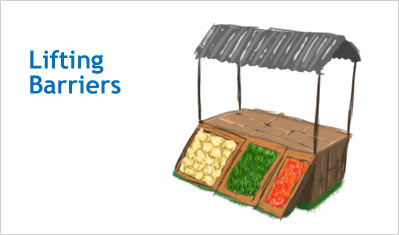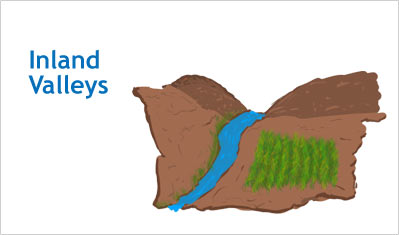Communal irrigation is when farmers share water resources or irrigation infrastructure and collaborate to receive the water they need. In some places and at some times this works better than smallholder private irrigation. A good example of this is where access to groundwater is difficult for individual farmers.
Communal irrigation may also be preferred by donors, governments and NGOs who want to ensure that all farmers can benefit, even the poorest who may be unable to afford private irrigation.
[row][column size=”1/2″ center=”no” class=””]
 In most of Sub-Saharan Africa, small reservoirs are earthen or cement dams that are less than 7.5 meters deep. They provide significant opportunities for soil and water conservation.
In most of Sub-Saharan Africa, small reservoirs are earthen or cement dams that are less than 7.5 meters deep. They provide significant opportunities for soil and water conservation.
 Several factors influence the ability of the farmer to make use of an AWM option. In many cases it is not possible to simply provide a source of irrigation water.
Several factors influence the ability of the farmer to make use of an AWM option. In many cases it is not possible to simply provide a source of irrigation water.









